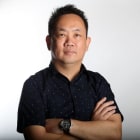The Singaporean serial entrepreneur who kept failing, until he got a lucky break
Leonard Lim’s childhood dream of running his own company turned into a tale of debt, despair and divorce. But he persevered, reinventing thermal scanners – and himself – as the series Made in Singapore discovers.
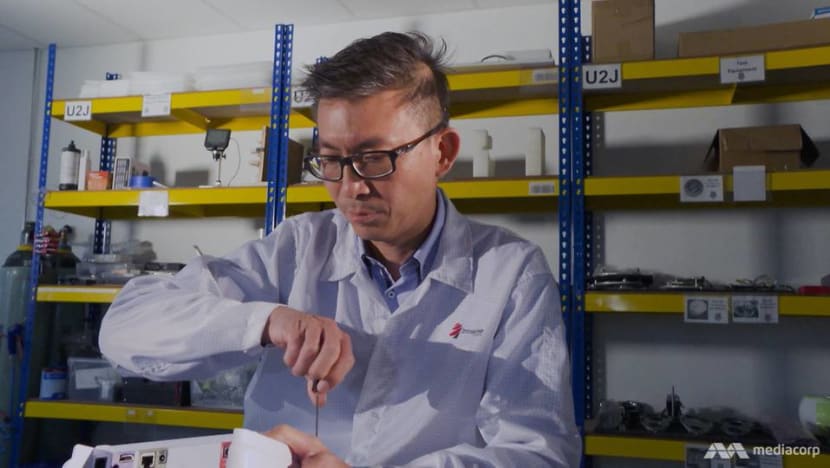
Omnisense Systems founder and chief executive officer Leonard Lim.
SINGAPORE: When his first business, a construction and interior design firm, failed in 1997, entrepreneur Leonard Lim found himself struggling, financially and mentally.
He had lost a chunk of money in the business and ended up in debt, to the tune of a few hundred thousand dollars.
“We owed the suppliers money, projects were half done and debt collectors turned up at my door. It was quite upsetting; my mother and everyone was quite stressed,” he recalled.
“I couldn’t see a way out of it. I even had to ask for an allowance from my mum. It was sad and embarrassing.”
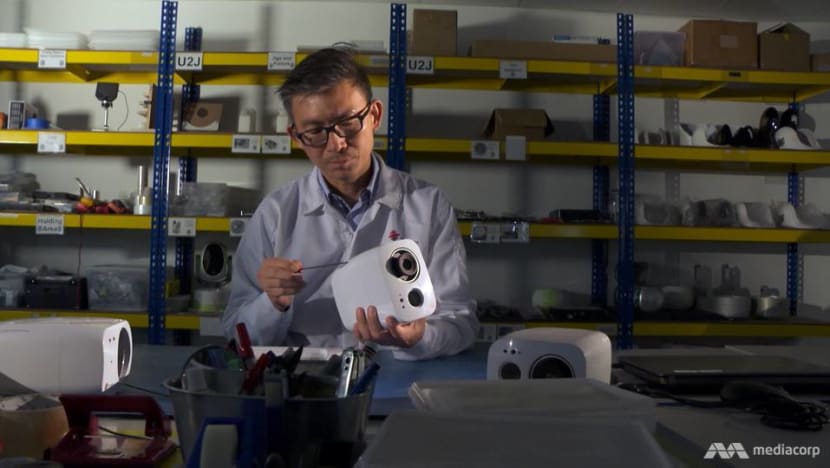
The then 27-year-old went fishing to de-stress, but that turned out to be more depressing.
“I went to the Kallang River on a daily basis, and I just sat there,” he recounted. “I spent five, six months just fishing every day. And believe it or not, I didn’t catch a single fish.”
This local inventor went on to start several businesses over the next few years – and failed each time. But he persevered, driven by his childhood dream to run his own company, and finally succeeded.
Today, he is the founder and chief executive officer of Omnisense Systems, a company that has revolutionised the way fever screening is done, with its made-in-Singapore thermal sensors.
Singapore is not lacking in inventors and inventions, from square milk bottles to a drink-mixing machine, yet many of these creators, like Mr Lim, have kept low profiles, as the four-part series Made in Singapore finds out.
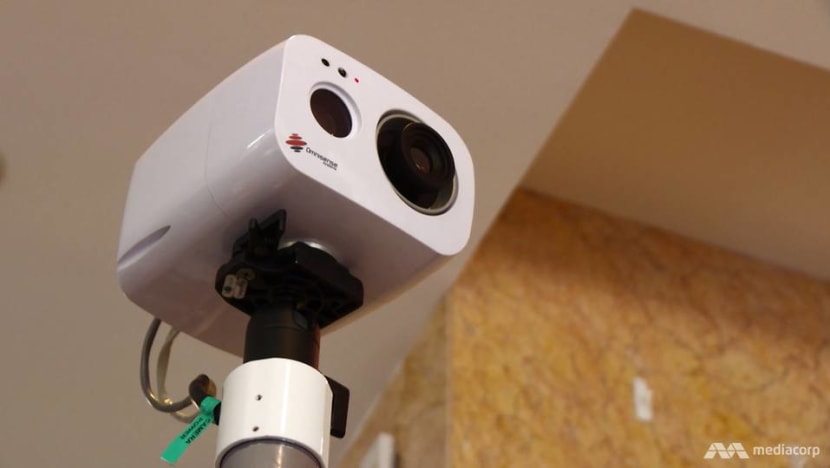
FALLING BACK ON RATIONS
In Mr Lim’s case, his entrepreneurial journey is peppered with failures, some lucky breaks and life lessons.
Not academically inclined, he did not do well in his A Levels. He embarked on a part-time economics degree but gave it up and started working as a salesperson for an exhibition company, which folded a few months after he joined.
With some of his ex-colleagues, they started a company installing door frames and kitchen cabinets for condominium projects. It was his first business, at the age of 24, and he was excited at the prospects. The firm lasted three years.
“The company ran into cash-flow issues, and in my opinion, they were caused by some dishonest practices by my partners. (It was) my fault as well, since I missed many signs until it was too late,” he said.
I didn’t handle the situation very well.
That episode left him broke, in a funk and back to picking up fishing (unsuccessfully) to deal with the situation.
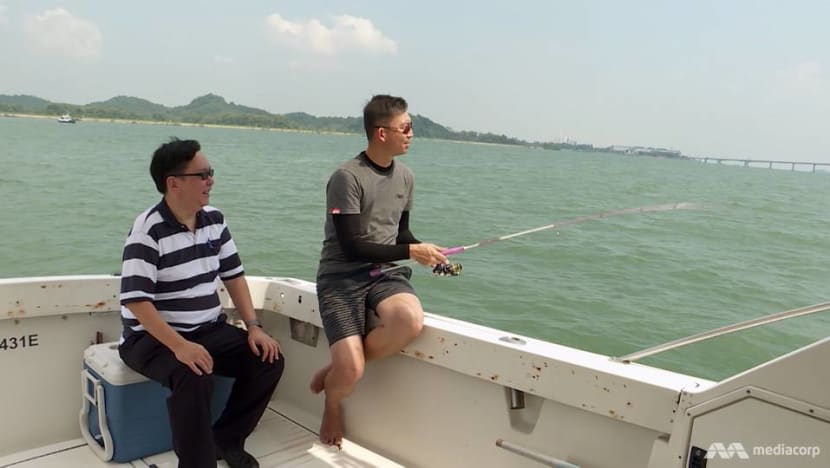
After a few months “in limbo”, he set up a small internet business, but that failed to take off. Once again, he found himself broke, but he was more prepared this time.
“I had stocked up on some canned food and rice at home so that when I was really broke, at least I could fall back on my ‘rations’,” said Mr Lim, who had already moved to his own HDB flat.
He also joined a church group, whose members gave him moral support. And he started doing volunteer work with underprivileged children, which, in turn, helped him. “Through those children, I started to understand myself much better," he said.
I was able to identify some counter-productive emotional feelings I had and learnt to deal with them. I also found a more stable job.
TAKING A CHANCE DURING SARS
After a few years, Mr Lim felt the itch to start a business again. This time, he saw an opportunity during the outbreak of the severe acute respiratory syndrome (Sars) in 2003.
The Defence Science and Technology Agency was then exploring the option of using an infrared system to identify those with a fever, he recalled.
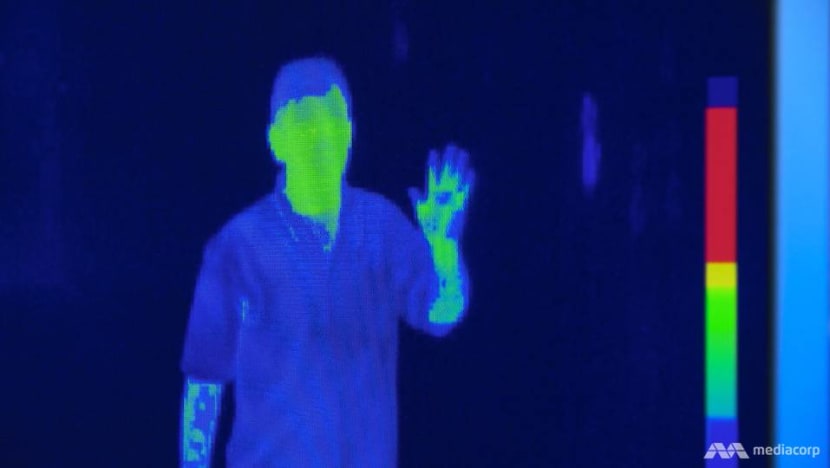
“While everybody in those days was trying not to go out, I actually went around looking for these systems,” he said. “It was a national crisis, so a quick solution was really required to manage the situation.”
He had always been fascinated with infrared technology, having watched a video on a British tank that used the technology during his secondary school days in the 1980s.
From his market research during the Sars period, he found that there were few systems in the market, while the existing ones, he felt, were too “crude” and “clumsy” to do the job.
He quit his job and joined a friend’s IT start-up to do development work on that project, to his mother’s disappointment.
“When everybody was afraid of losing their job because of the economy … and people were being retrenched, I still had my job and I quit,” he said. “As far as she was concerned, it was an extremely illogical decision.”
His new company faced a challenge getting its hands on an infrared camera, which was a controlled item, and the licence application took a few months.
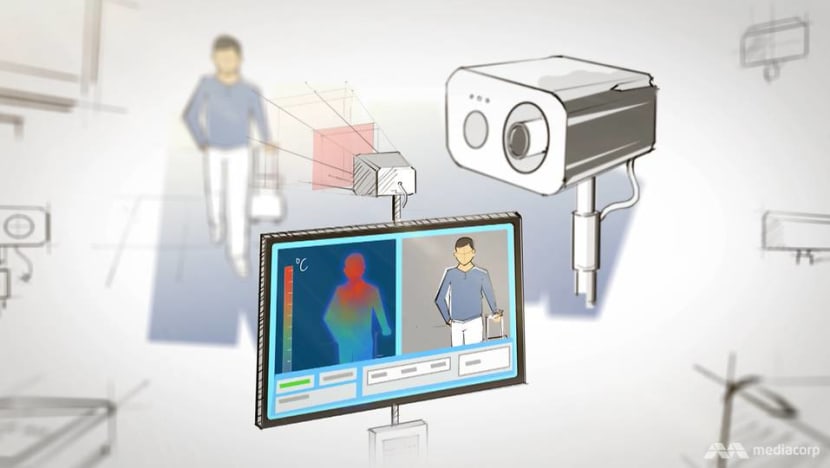
The firm worked “non-stop” on the project in order to push its system into the market “fast enough”.
Apart from dipping into his savings, Mr Lim borrowed some S$40,000 from his mother for the project. But when it was finally market-ready, the firm suffered a setback.
“We had made an appointment with the testing agency … to validate the system,” he recalled. “(But) the government announced that all these screening measures would be terminated.
“We lost three to four months and maybe over S$40,000 … which (mostly) didn’t belong to me.”
He learned a few things, however. “First of all, I think speed to market was quite important. Second, we realised that the system itself still had a lot of gaps, which I think needed to be bridged,” he said.
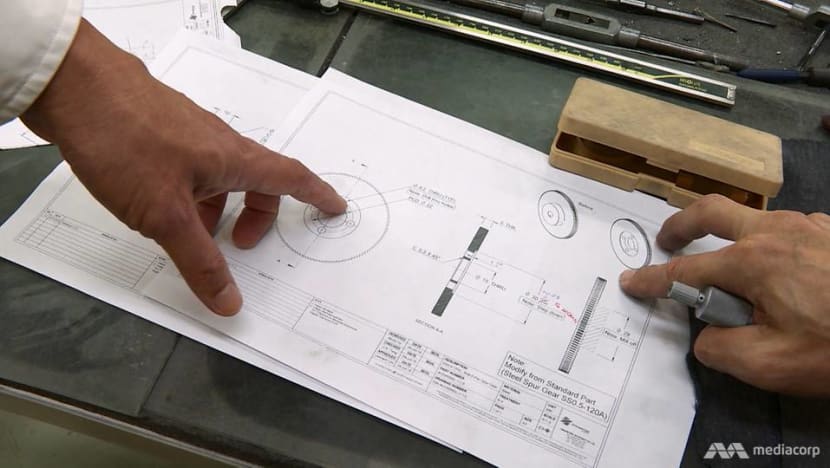
Owing to that experience with infrared technology, he found another job dealing in such systems but then left the firm after two years because of a disagreement.
STAFF OFFERED TO WORK FOR FREE
In 2006, Mr Lim started Omnisense Systems to develop night-vision products for commercial applications. It exposed him to financial hardship again.
Back then, such products were essentially for the military market, so his company had to spend a couple of years learning to redevelop the products.
Things got desperate, however, when the 2008 financial crisis hit hard – and a corporate funder pulled out. “I was quite devastated when the news was broken to me,” he recalled.
We were left with nothing. We had no money for salaries.
But several of his staff offered to work for free. “I was very touched by such a gesture at that point in time. And I thought that people did believe in the things we were doing.”
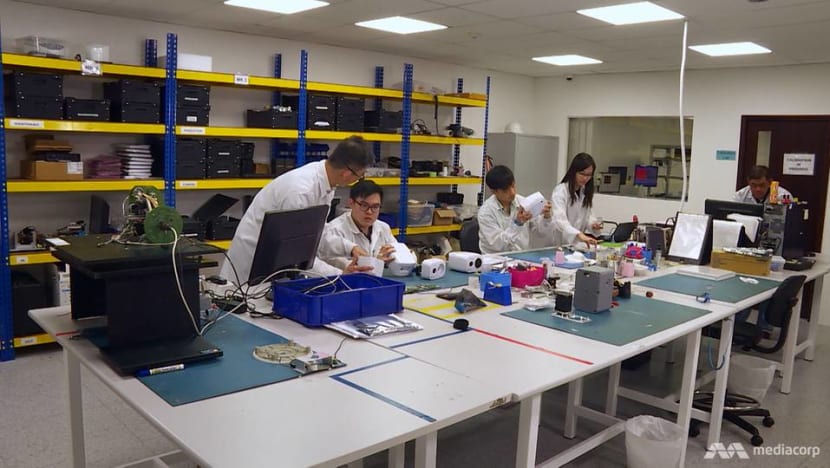
While looking for other opportunities for the company, he got a lucky break when the Influenza A (H1N1) virus hit home in 2009. He decided to revisit the fever screening system.
“There were quite a lot of requirements, and people looking for fever screening systems, so we took the opportunity and went into this market,” he said.
Based on his earlier experience, he developed a new system, one that was more accurate, affordable and easier to use.
The big break came when the company tendered for and won a contract with the Education Ministry, beating out several major players in the market. After that, it started to showcase its products more aggressively.
“The sales started rolling in. We got our first hospital deal, which was quite significant during those days (2010). In fact, that system is still operating today,” he said proudly.
He reckoned that a few hundred of its systems are now deployed across Singapore, from hospitals to museums to Changi Airport.
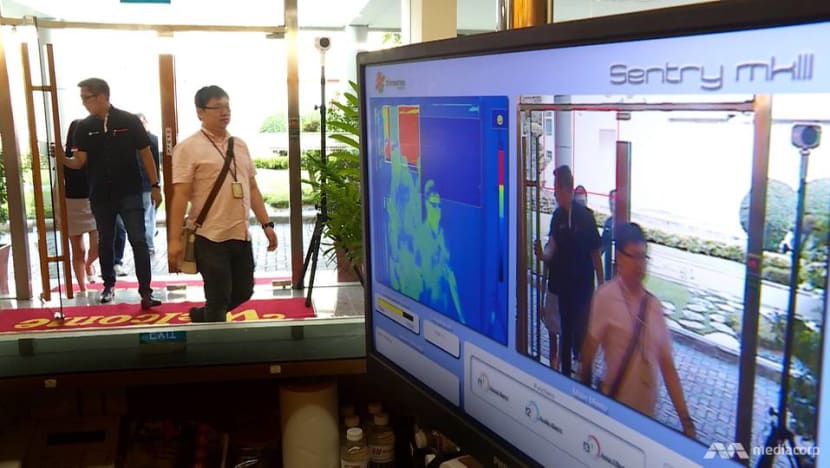
“It was a very satisfying experience, not only because we made some money, but also because we felt that we had done something that not many people could have,” he added.
Over the years, however, his struggles with his business and finances took a toll on his family life.
In the initial years of Omnisense Systems, he was constantly under financial pressure, he admitted, even though his then wife was working and able to manage most of the household expenses.
“But my personal financial hardship soon affected the relationship, and we divorced around 2012. My son was around six then,” said Mr Lim, who has since remarried and also has a two-year-old daughter now.
IN A BETTER PLACE NOW
Omnisense Systems, which started with three staff, has now expanded to more than 40 people, in Singapore and now Taiwan.
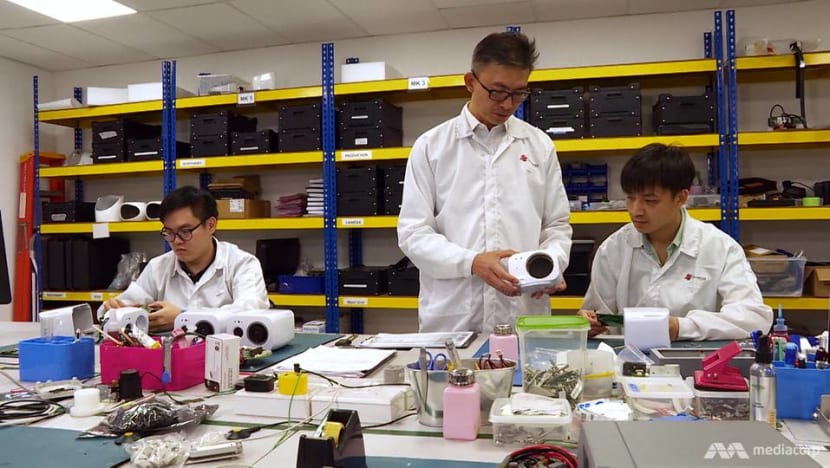
In 2016, Singapore Exchange-listed BH Global Corporation bought a 51-per-cent stake in the company, giving it – and Mr Lim – a major boost.
“The nature of our business revolves very heavily around development work. So the cost of development and trying to push products into the market is quite significant,” he said.
“As a private company with very limited finances, we came to a point where it was very difficult for us to continue without external financial support.”
Now that the firm has a development centre in Taiwan, it can “develop products and manufacture them in a way that we couldn’t have done (before)”.
It is also looking to fine-tune its fever screening systems and explore the maritime market, hoping to make a mark overseas.
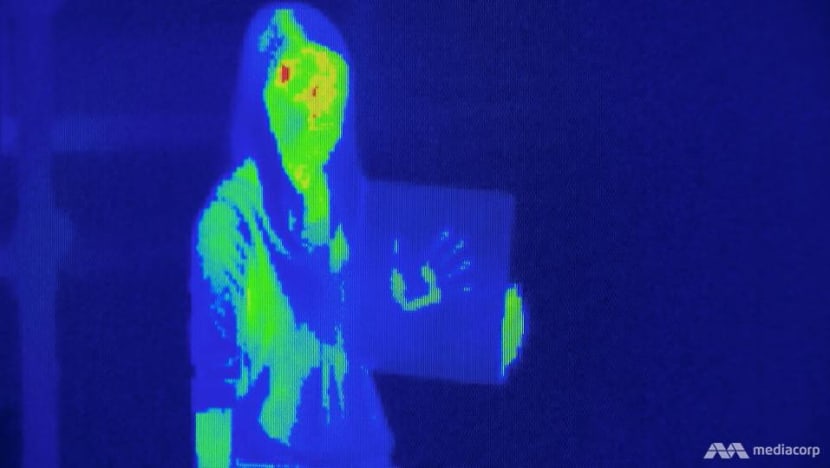
Financially, Mr Lim is also in a better place but has “not yet made (his) fortune”, as he has reinvested most of his income into his thermography and night vision business.
His failures and personal crises over the years, including his utilities being disconnected and his car being repossessed, have moulded him into the person he is today, he said – more humble, with a sense of perspective and better self-awareness.
“I’m glad there was quite a fair bit of failure quite early in my life. That built me up,” he said. “Through all those failures, I realised that, very often in a crisis, there are a lot of opportunities.”
He advised entrepreneurs struggling today to be patient and to develop emotional stamina. “For every great journey, obstacles and trials should be expected. We need to find the correct motivation to push on,” he said.
“There’s also a time to give up. Knowing when to give up or alter course is a difficult but important decision to make. There’s no shame in failure; recognise when we make a mistake … learn from it and move on.”
The series Made in Singapore tells the stories of eight inventors and their inventions. Watch it here. Or catch episodes on Channel NewsAsia on Tuesdays at 9.30pm.








